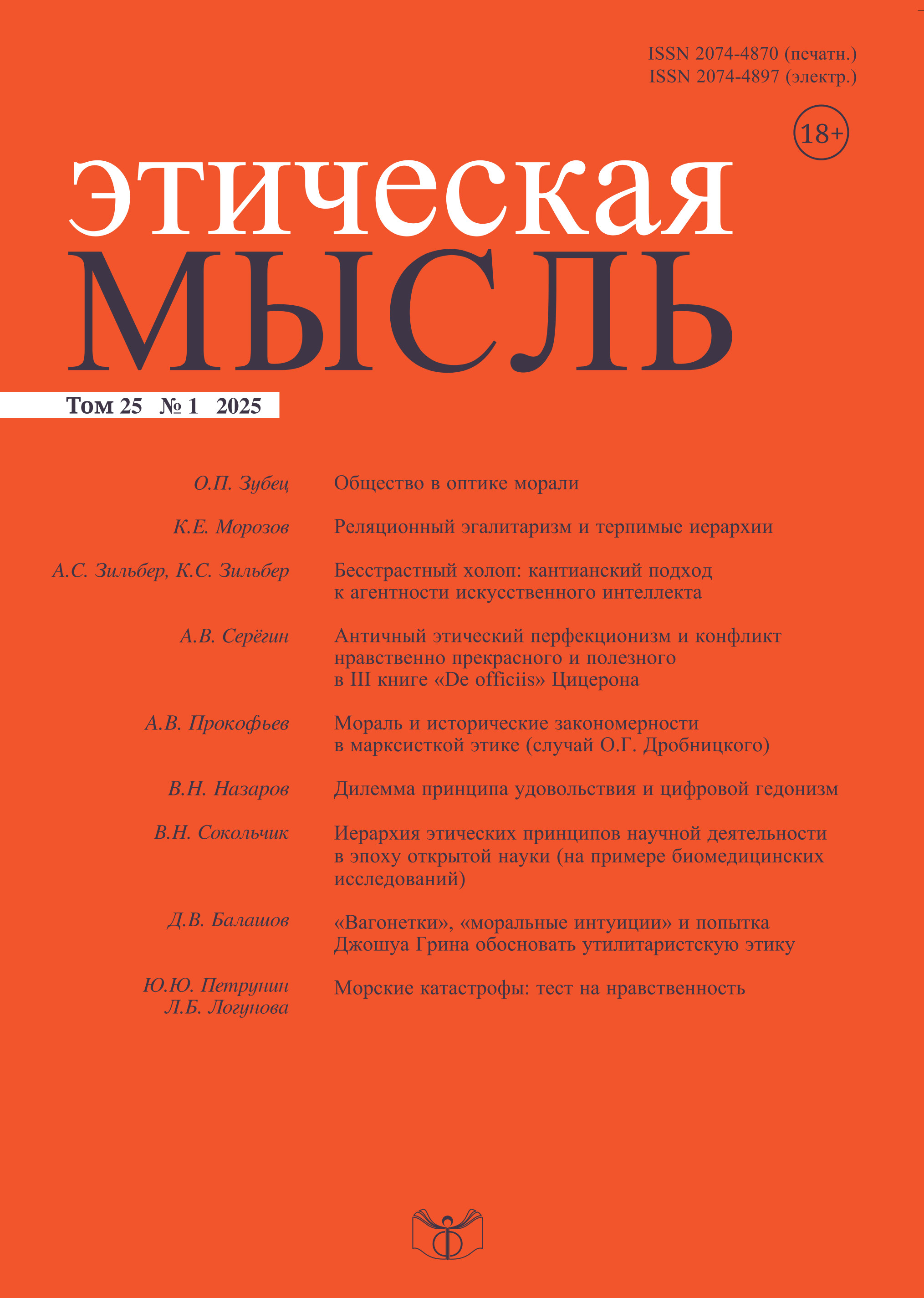Relational Egalitarianism and Tolerable Hierarchies
DOI:
https://doi.org/10.21146/2074-4870-2025-25-1-22-35Keywords:
distributive justice, equality, sufficiency, egalitarianism, sufficientarianism, social relations, hierarchy, respectAbstract
For much of the second half of the 20th century, discussions of social justice were dominated by distributive egalitarianism. According to this approach, justice requires an equal distribution of economic and social goods among people. Distributive egalitarianism has been criticized from two directions. On the one hand, relational egalitarians argue that equality should be understood not as an equal distribution of goods, but as social relations free of discrimination and oppression. On the other hand, sufficientarians argue that distributive equality does not matter as long as everyone has a minimally decent share of goods. A recent approach that synthesizes both lines of criticism is relational sufficientarianism. Its proponents, such as Justin Tosi, argue that justice requires only minimally decent social relations, but not fully egalitarian ones. The main argument for this position is that relational sufficientarianism better explains our intuitive acceptance of tolerable hierarchies. Such hierarchies lack aspects of discrimination and oppression, but they also lack instrumental value and are distinctly inegalitarian in nature. This article offers a response to Tosi’s argument from the perspective of Rawlsian relational egalitarianism. This theory can explain the acceptability of tolerable hierarchies because they limit the requirement for egalitarian relations to the basic structure of society. The limitation of this requirement is explained by the principle of liberal neutrality, which also rules out the principle of desert as a possible justification for hierarchical relations. The article concludes that, at this stage, relational egalitarianism has significant explanatory advantages over relational sufficientarianism.









